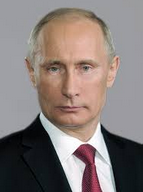Russia continues to bear down on the Ukrainian forces in support of the Ukrainian separatist forces. In the face of this, America and the EU have put in place certain economic sanctions to encourage Russia to stop. These sanctions include such rules like: no US concern shall be allowed to do business with a concern that is controlled (over 50%) by a sanctioned Russian concern. Other sanctions are targeted at the Russian controlled shale-oil projects in the Arctic. Clearly, these sanctions affect a large variety of businesses and, due to the complex nature of the global economy, not all of those concerns will be Russian.

Putin is in charge of not just the fate of Russia and the Ukraine but of a lot of American firms as well.
Many private equity firms have issued orders to special teams to look into their investments and decide which could be affected by these changing sanctions. This is something that all firms have to face and those who are the best informed are also the most prepared should the sanctions continue past the end of this month (if Russia complies with the 12 point peace plan and removes all Russian material and forces from Ukraine by September 30 the sanctions will be lifted). And, should the sanctions continue, they will only get stronger. Experts suspect that sanctions could grow to deny all but short-term investments in Russian concerns by American firms. Russia is the eighth largest economy in the world today so, this will have an effect on the whole world.
To make matters even more difficult to handle, Russian law permits companies to have as many as six different aliases. Private equity firms trying to identify which of their concerns will be affected must wade through this murky water which is a far from simple task. Hopefully, Russia will comply with the sanctions soon so that the effects of these sanctions will not be so long lasting or detrimental to private equity firms and the global economy alike.